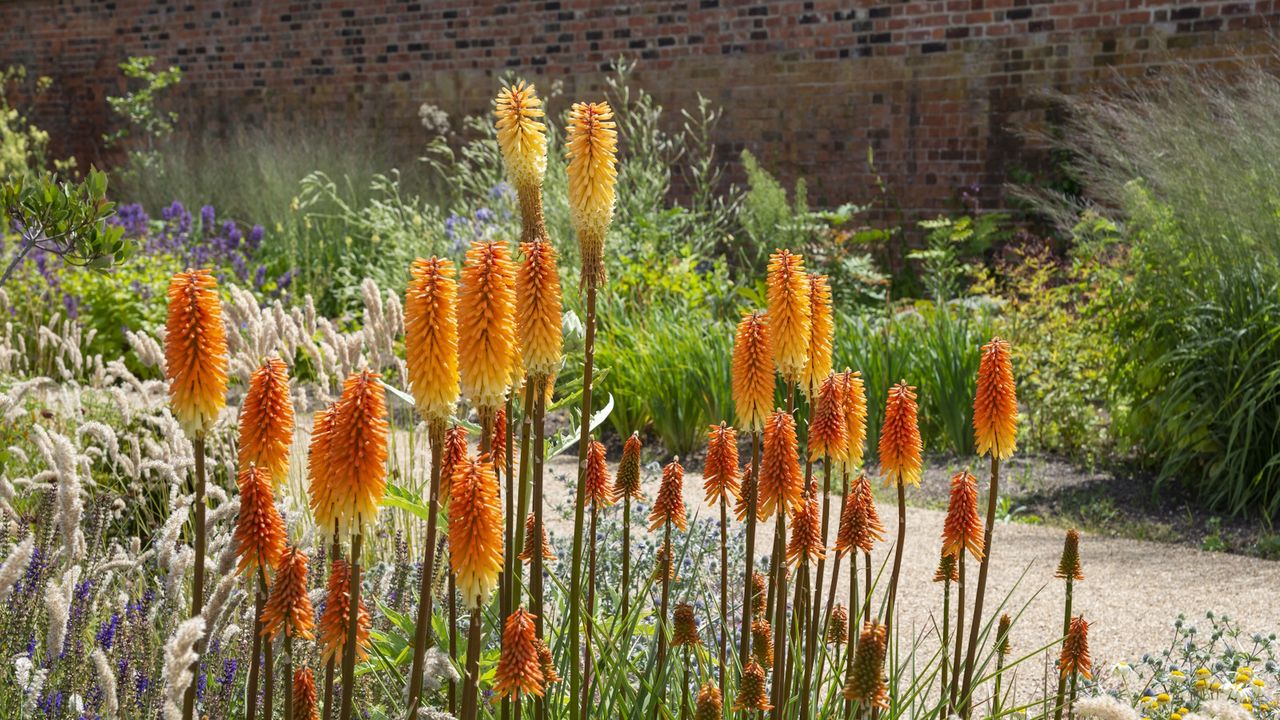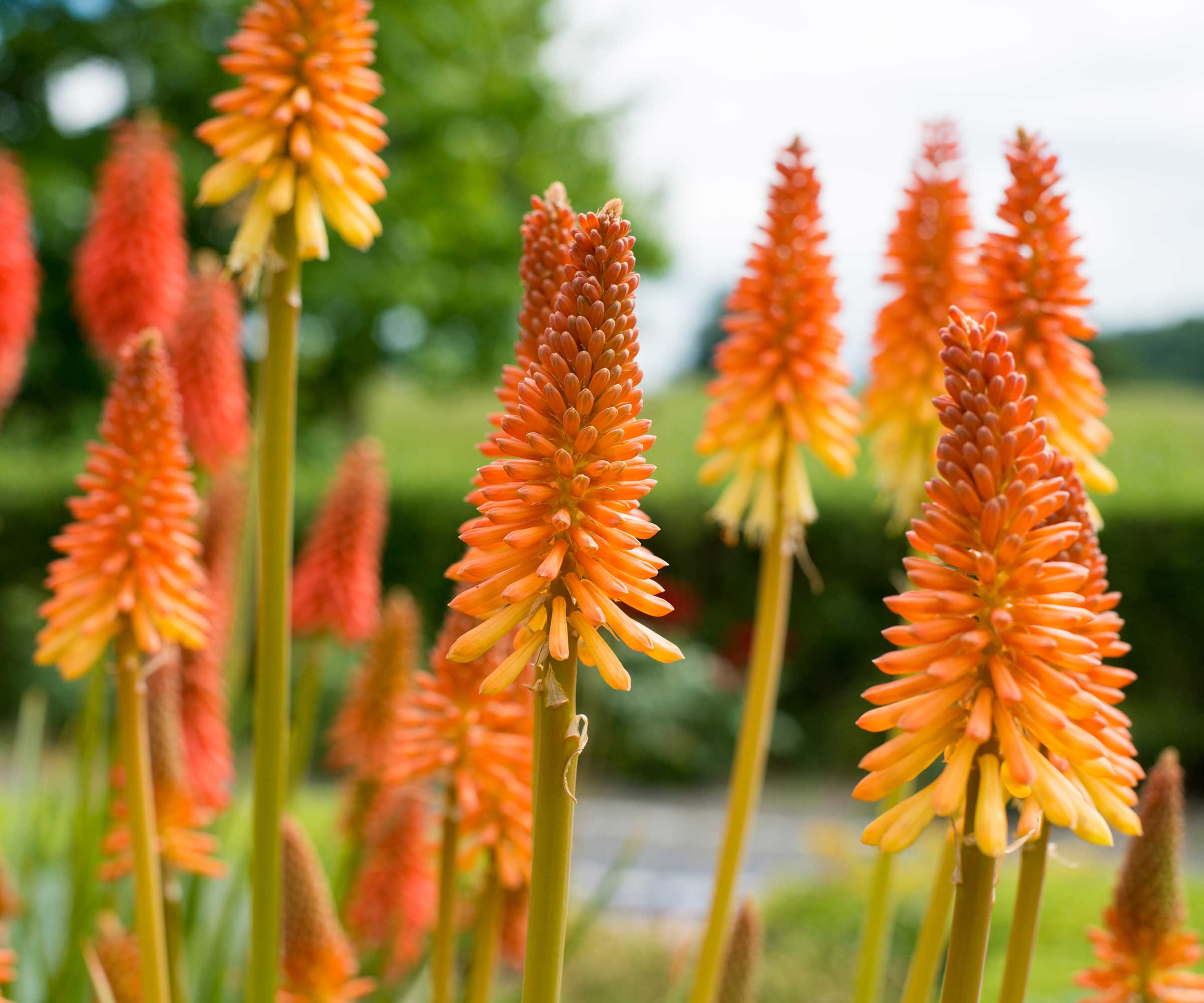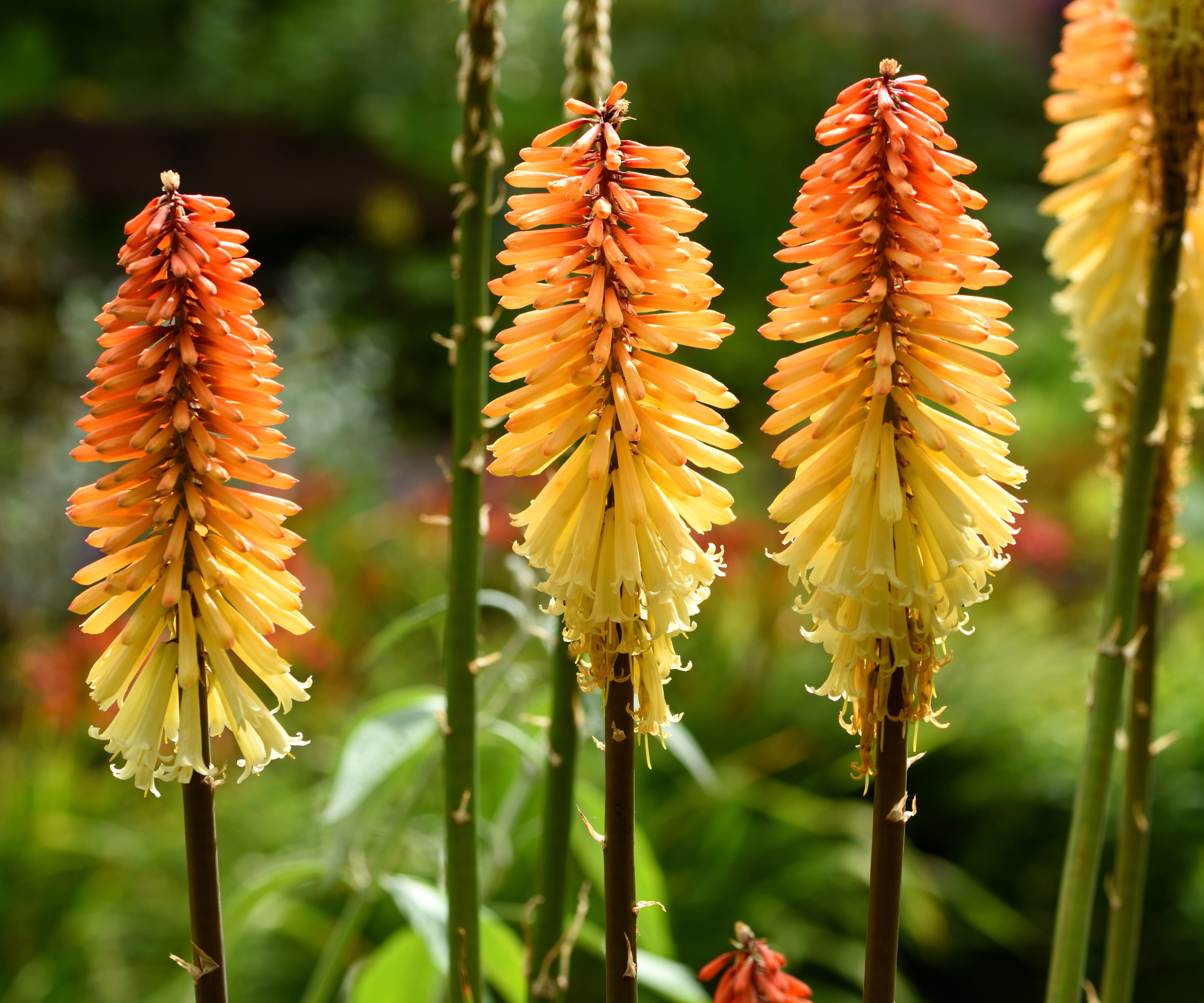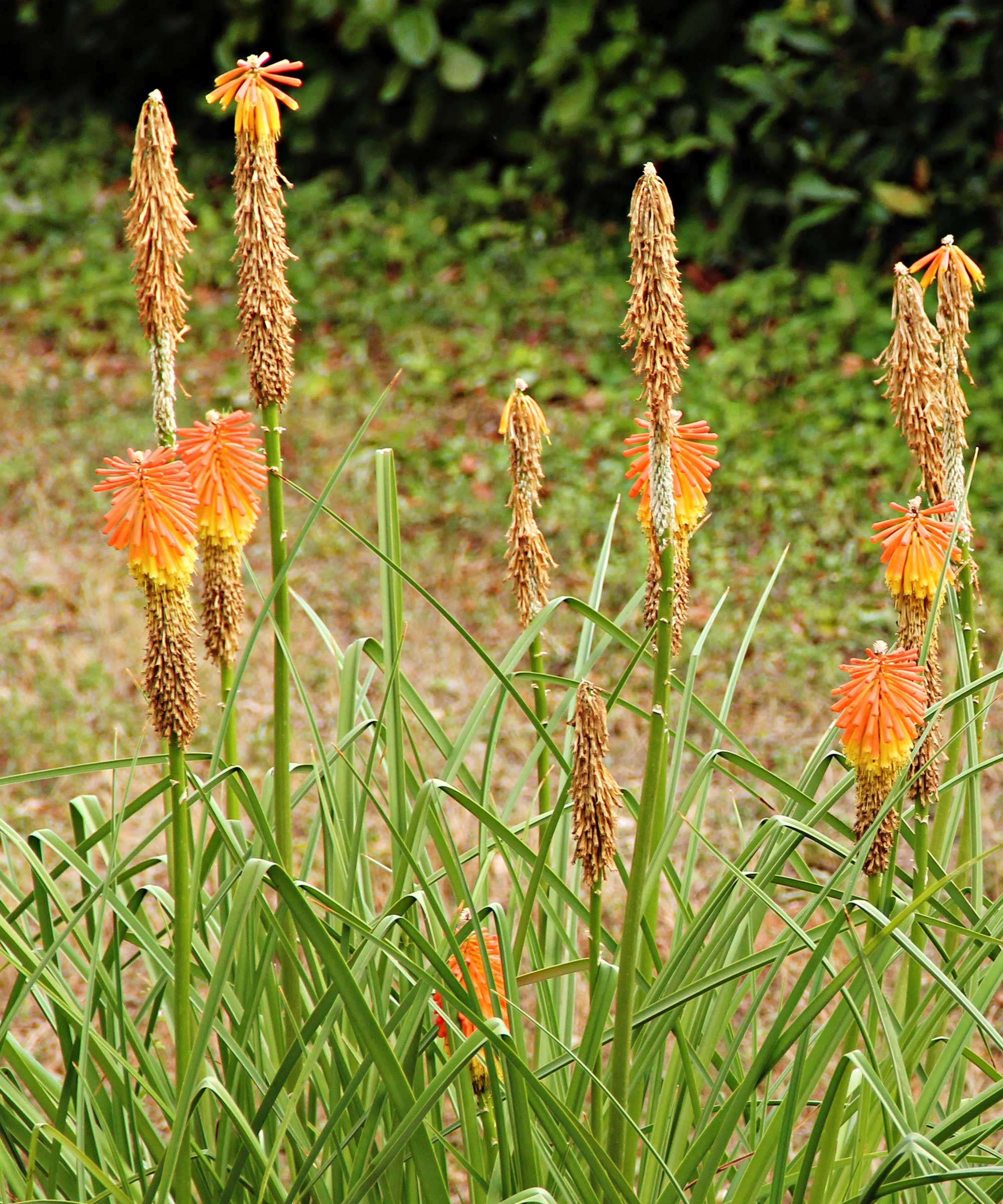
Love them or hate them, you cannot deny that red hot pokers are plants of impact. Those red, orange or yellow blooms inject a little bit of summer drama that few other perennials can match.
Red hot pokers, or Kniphofia spp., are famously tough, the sort of plant that will tolerate a degree of neglect, and, in my experience, feeding them is not really necessary. I have seen them growing on rocky outcrops and in gravel gardens, and they seem to grow just fine without much nutrition.
If, however, your red hot poker has lacked blooms this year, a small amount of feed can help to encourage flower stem production. Here’s exactly what I know about how to grow red hot pokers, including when and how to fertilize them so they look their best from summer right into fall.

Growing red hot pokers
Red hot pokers are native to South Africa, thriving in sunny situations and dry soils. There are over 70 red hot poker varieties, most of which can be grown between zone 5 and zone 9, ranging in color from zingy yellow to deep red.
If you are looking for a new plant to grow this year, try this 'Solar Flare' yellow variety, with live plants available to order now via Amazon.
Most gardeners would consider red hot pokers as perennials that thrive on neglect, typically not needing any supplemental feeding.
However, if yours are lacking red, orange or yellow flowers, giving a (very) light feed using the right product can make a big difference.
When to fertilize red hot pokers

I have found that these tall perennial flowers tend to grow just fine without much need for fertilizer.
So, there generally isn't much need to add this as a regular monthly job on your summer gardening checklist.
Instead, I would suggest only feeding red hot pokers if there is a noticeable problem, such as they are lacking in flowers during the growing season, anytime between June and August.
A single application is all that would be needed, and feeding any more than this would be a fertilizing mistake.
How to fertilize red hot pokers

If your red hot poker is lacking in blooms, then it will respond best to a balanced or potash-high feed.
Potash, or potassium (the last number in an NPK plant fertilizer number ratio), is what fuels flower production, so you want something like a 4-6-8 or 5-5-10 formula.
For a high-potash feed, try something like this organic tomato fertilizer from Burpee, available from Amazon now, which should do the job nicely.
I would warn against using any products that are high in nitrogen, which will encourage plenty of lush green growth at the expense of flowers.
For potted kniphofias, and yes, they do surprisingly well in large containers if kept watered, I would recommend a liquid feed every two weeks during active growth.
A tomato fertilizer, like the product listed above, works perfectly here, as it’s naturally high in potash.
In fall and winter, once the foliage and flower stems have died back, I would suggest mulching, using a thick layer of well-rotted compost or leaf mold. This will help to improve the structure and quality of your soil and might reduce any need for feeding during the following season.
But, a word of warning, do not smother the crown with mulch, as kniphofias dislike sitting wet over winter, and can rot if the crown stays damp.
FAQs
Can I use bone meal to feed red hot pokers?
Bonemeal is high in phosphorus, which is one of three major nutrients that plants require for healthy growth. This can be used for any perennials, including red hot pokers, although if you want more flowers, aim for a feed that is also high in potash.
In general, red hot pokers tend to get on just fine without much need for fertilizer. So, feed sparingly only if necessary, and with an annual mulch, your plants should get on just fine without supplemental fertilizer.
For more information, see our guide on how to prune red hot pokers.
Shop fertilizing kit
This organic plant fertilizer will give your red hot pokers a boost this summer.







